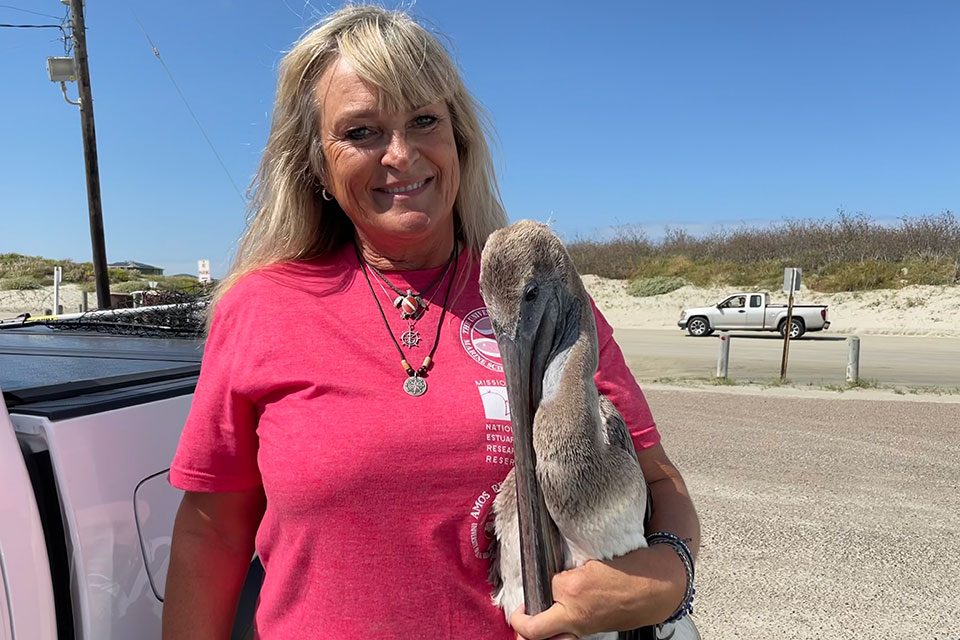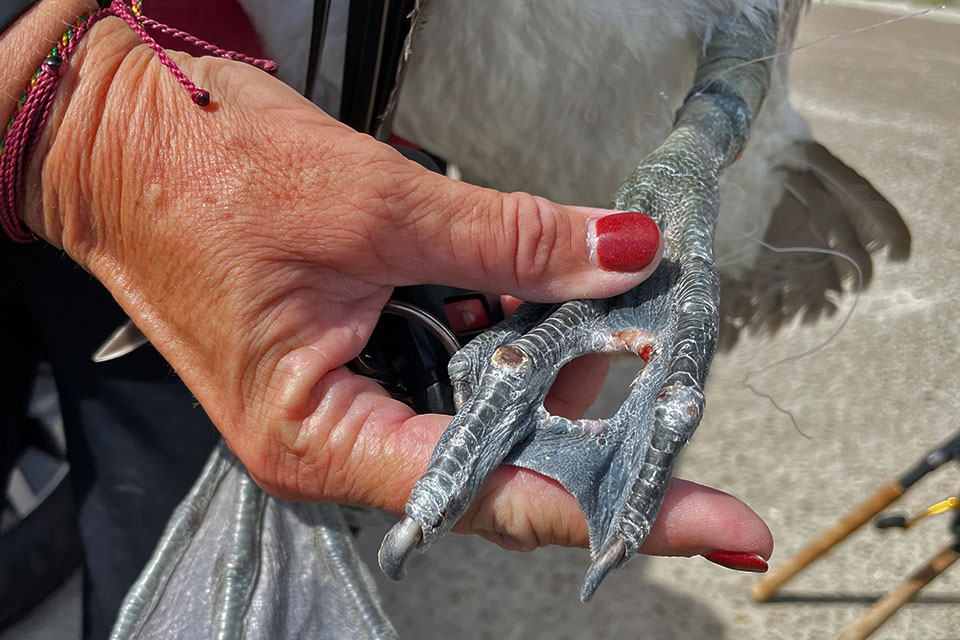

PORT ARANSAS, Texas — One can’t visit this island town on the Gulf of Mexico without at least taking a drive on the beach.
A midway break allowed such a trip, so with boxed lunch in hand, the quick drive was made. Parking next to the Keepers Pier, a short walk to a picnic table was interrupted by Fawn Berger and the buzz surrounding her.
She’s easy to notice: a tall, tan blonde Texan wearing a bright red T-shirt and carrying a brown pelican. Yes, a pelican. There were a number of fishermen asking about her unique catch.
Berger, who volunteers at the University of Texas-Austin Marine Science Institute in town, was retrieving the injured juvenile bird from the end of the pier. She had just finished a 1,230-foot walk to her truck, where she placed the pelican in a cage to take back to the institute for rehabilitation.
“It’s an injured brown juvenile,” she said. “It has fishing line around its leg and hole in its foot where it must have had a hook.”

She showed the wound, which must have been there some time.
“This happens way more than you would think,” Berger said.
The Keepers Pier is promoted as one of the best fishing piers on the Gulf Coast. It puts anglers in deeper water usually only accessed by boat, where they can catch a number of species, including redfish. An 11-foot tiger shark was caught there in 2003, but the record is a 13-7 tiger shark from the 1960s.
Since a lot of fishing line is slung from the pier, as well as the jetties and even the beaches, it’s a good reminder for anglers anywhere to retrieve and properly dispose of as much fishing line as possible.
Berger said it’s a big problem that affects more than just birds. When asked if she was the “pelican lady,” Berger said she’s more known as the “sea turtle lady.” She showed a photo of a turtle release she took part in earlier that day.
Berger said loggerhead and other species of turtles also get caught in line way more than one might imagine. Along the beaches there are signs with phone numbers asking visitors to report any turtle sightings to help protect the endangered species.





